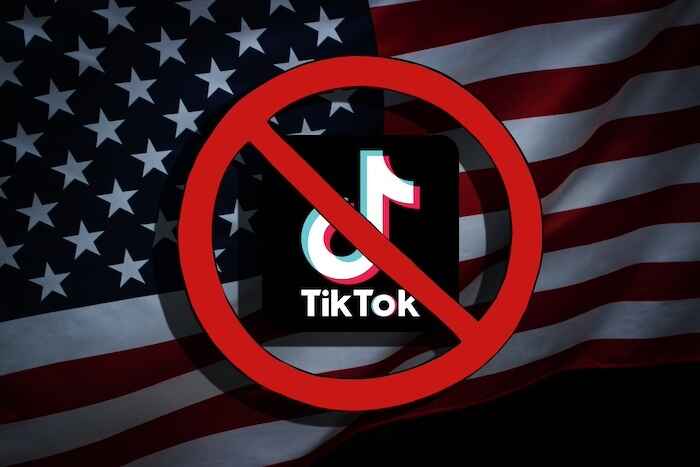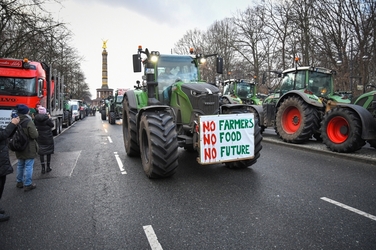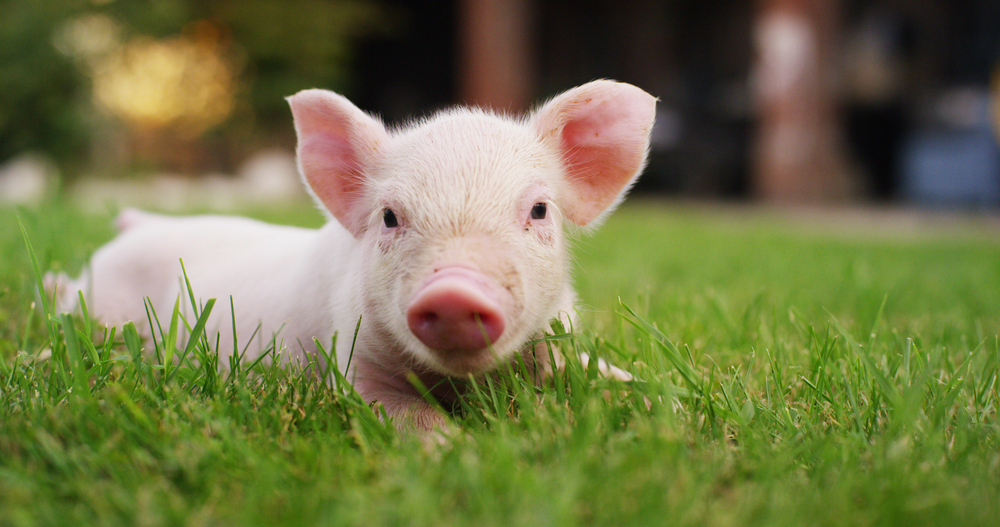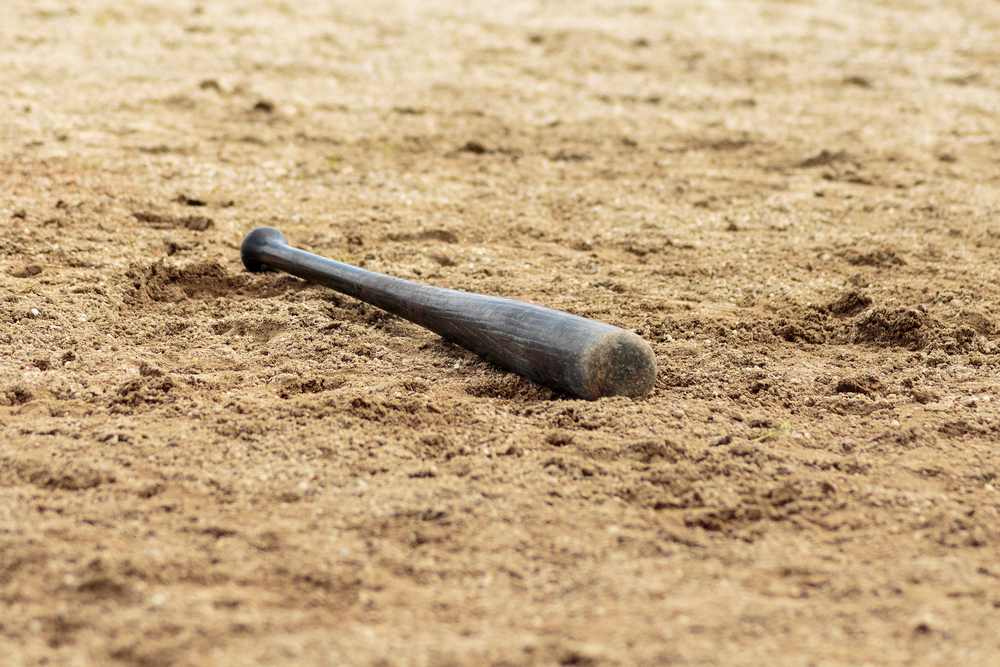A Battle I Chose to Lose
Joel Salatin|February 15, 2021
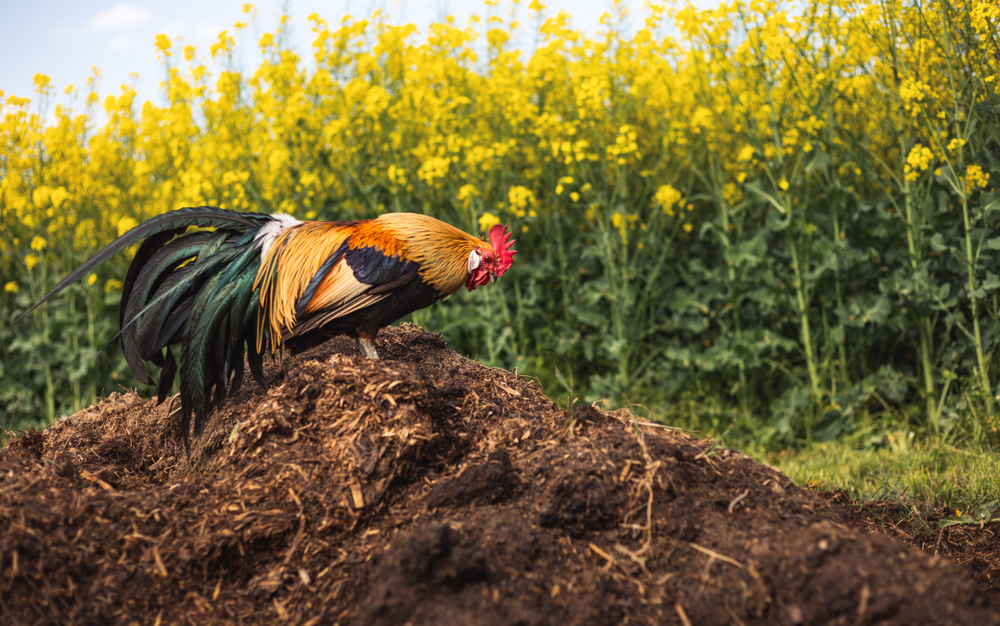
Editor’s Note: In the aftermath of the Robinhood firestorm, we learned one thing. That contrary to the story being told in the media, the company wasn’t out to screw the little guy to help the big hedge funds. No… thanks to government regulations, Robinhood had no choice but to shut trading down… or be shut down.
Joel Salatin has a similar tale for us today. Readers know he’s passionate about innovation and choice leading the way… not the government. It’s one of the biggest reasons for his success (and notoriety). And not long ago, he was faced with a choice that meant giving in without a fight. Check out his story below, and be sure to let us know your thoughts at mailbag@manwardpress.com.
Our farm is portrayed in a 95% positive light in countless national media outlets, books and film documentaries.
Yet we’re disliked by many, if not most, of the conventional farmers in our community.
That’s not a terrible thing until you have a government regulatory structure that naysayers can leverage.
We live in a time of escalating snitching and finger-pointing. Now, I have no problem defending my practices to a neighbor, standing toe-to-toe comparing my field with his. But when the government car shows up, it’s quite a different story.
The nanny state gives disgruntled people new clout in the war over freedom of choice.
But when you make a living thinking and doing things differently, sometimes you have to lose the battle to win the war.
Disposable Means
We’ve never used chemical fertilizers. We prefer compost.
We make mountains of it… and over the years have become fairly good at it.
Good compost requires the right mix of carbon, nitrogen, water, air and microbes. Anyone who has dabbled in compost, from crude backyard bins to commercial multiton piles, knows the magic of this process.
Stinky and noxious things go in, and beautiful, aromatic things come out. It’s nature’s ultimate alchemy. I never tire of both the process and the product of this miraculous transformation.
When we began processing chickens on the farm, we had blood, feathers and offal (guts) left over. We first tried burying them in trenches, but vermin would come and dig them up. Then some experts advised incinerating, but that’s extremely costly and didn’t mesh with our carbon cycling, closed-loop mentality.
So as we became more experienced in composting, we decided to try that method for disposal.
Over time, we developed a procedure and material protocol for excellent results.
We built the compost pile next to where we processed chickens (which was also next to where customers came to pick up their chickens). The pile was odor-free, fly-free and vermin-free.
The best material for carbon turned out to be woodchips. Straw didn’t fall together tight enough and allowed tunnels for vermin to get in and noxious odors to get out. Sawdust was too high in carbon and compressed too tightly for good oxygen flow. Chips were the Goldilocks carbon – just right.
As our poultry processing operation grew, so did our compost pile. We eventually moved the offal compost to where chipper crews dumped their loads, out by the public road.
That made it more visible to passersby. We bribed utility chipper crew chiefs with eggs or a Thanksgiving turkey to get them to dump their loads at our farm entrance. It worked.
But not for long…
Unfair Rules
Unlike our farm, factory poultry farms in the area have all sorts of internal and governmental regulatory requirements for their mortality disposal.
Originally, these commercial outfits would bury their daily mortalities. When that proved an issue for contamination, they began incinerating them. But, again, that was expensive.
Eventually, the industry in collaboration with government regulators allowed on-farm composting and created specific standard operating procedures to accommodate this revolutionary disposal method. It required concrete floors and covered sheds.
When these farmers drove by our pile, it looked unfair. How could we get by with an outdoor, uncovered, on-the-ground compost pile when they had to pay thousands of dollars to erect special facilities to do the same thing?
And of course they were steeped in the verbiage of biohazard disposal. They genuinely thought our “negligence” would eventually lead to a disease outbreak in their commercial poultry houses.
Of course, we were completely outside the conventional system. We knew our little piles (6 feet wide by 5 feet high by 30 feet long) did not leach anything into the groundwater, but it was hard to prove.
A friendly neighbor tipped us off one day that another unfriendly neighbor had called the Virginia Department of Environmental Quality with a complaint. Regulators were mobilizing for a visit.
Suddenly, we had to make a decision.
Stand Down
Should we keep doing things our way… or proactively acquiesce?
We weighed the options and realized this was not a battle we could win… and one we didn’t even want to fight.
We would be considered guilty until proven innocent. Proof would entail countless measurements, digging and hours.
It wasn’t worth it.
We quickly built a shed, poured a concrete floor and moved everything under roof.
The inspection never happened… and nobody could see what we were doing from the road.
We hated the expense, but we slept soundly at night knowing that if anybody came snooping around, we could show them clearly zero leaching from the pad.
The pile doesn’t stink. Visitors don’t even know what’s going on in there. They just see it as a hot pile of woodchips – that’s all you can see from the outside.
We push the envelope in many other areas. But this time, we decided the most prudent thing was to look like other people.
Sometimes being weird isn’t worth it.
If you’re going to be weird, make sure it’s a hill worth defending.

Joel Salatin
Joel Salatin calls himself a Christian libertarian environmentalist capitalist lunatic farmer. Others who like him call him the most famous farmer in the world, the high priest of the pasture, and the most eclectic thinker from Virginia since Thomas Jefferson. Those who don’t like him call him a bioterrorist, Typhoid Mary, a charlatan, and a starvation advocate. With a room full of debate trophies from high school and college days, 12 published books, and a thriving multigenerational family farm, he draws on a lifetime of food, farming and fantasy to entertain and inspire audiences around the world.


